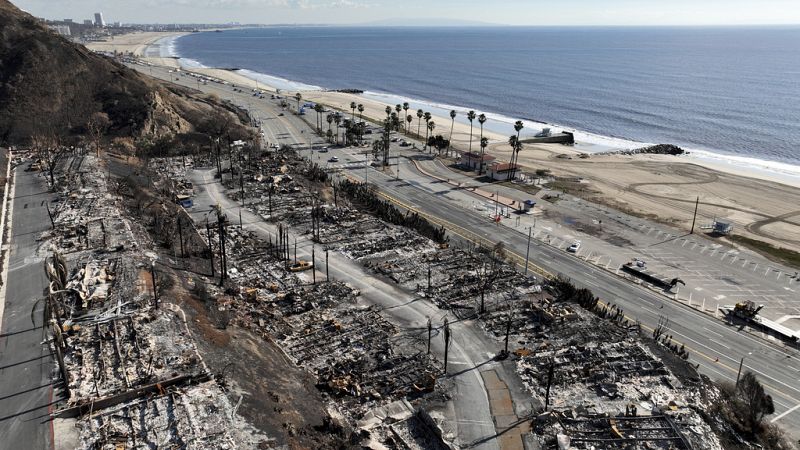
False information and conspiracy theories about extreme weather events spread faster than life-saving alerts on some social media platforms, according to a new study.
Research by the Centre for Countering Digital Hate (CCDH) claims that Meta, X and YouTube threaten public safety by enabling misleading claims during catastrophic weather events.
The CCDH says this practice has resulted in “impeded emergency response and erosion of public trust in disaster relief efforts” in some cases.
‘The rapid spread of climate conspiracies online isn’t accidental’
CCDH researchers analysed 300 viral posts containing false or misleading information on Meta, X and YouTube during recent extreme weather events, including the LA wildfires and Hurricanes Helene and Milton.
The report claims that in the wake of these events, social media platforms “amplified conspiracy theorists while sidelining vital emergency information.”
The researchers analysed five different types of misleading claims: about the causes of severe weather events; about disaster relief aid; about emergency responses; about the impact of climate change; and about political responses.
They found that Meta (which operates Facebook and Instagram) lacked fact-checks or community notes on 98 per cent of posts analysed.
X lacked fact-checks or community notes on 99 per cent of posts analysed, and YouTube had zero fact-checks or community notes on 100 per cent of posts analysed.
Instead, the overwhelming majority of posts spreading misleading information about disaster response, climate change causes, and emergency aid were left unmoderated before being algorithmically boosted and monetised, the study claims.
“While families mourned and first responders combed through wreckage after climate disasters in Texas and California, social media companies shamelessly exploited these catastrophes for profit,” says Imran Ahmed, CEO of CCDH.
“The rapid spread of climate conspiracies online isn’t accidental, it’s baked into a business model that profits from outrage and division.”
Social media posts claim hurricanes were ‘geo-engineered weapons’
The CCDH says recent disasters revealed a dangerous pattern where falsehoods outpaced facts on social media during weather disasters.
Following Hurricanes Helene and Milton in late 2024 and the LA fires in early 2025, conspiracy theories flooded platforms.
These included claims that hurricanes were "geo-engineered weapons" and wildfires were ignited by "government lasers".
Posts also sparked public anger by claiming that migrants were prioritised for aid, while scammers exploited survivors through adverts impersonating federal assistance programs.
The research found that this false information spread faster than updates from emergency officials and reliable news outlets.
High-profile and verified users spread most false information
The report’s authors warn that the influence of high-profile conspiracy theorists during climate disasters is drowning out emergency response efforts.
During the LA wildfires, American far-right radio show host Alex Jones posted several false claims, including conspiracies about food confiscation and “globalist” plots.
These amassed more views on X than the combined reach of FEMA, the LA Times, and ten major news outlets and emergency agencies from 7 to 31 January 2025, the research found.
The study also found that verified users who receive enhanced visibility and monetisation privileges are among the worst offenders.
88 per cent of misleading extreme weather posts on X, 73 per cent on YouTube and 64 per cent on Meta were from verified accounts.
“It is appalling to see how the climate science deniers and conspiracy theorists are manipulating extreme weather events to disseminate their fact-free fallacies,” says Sam Bright, international journalism organisation DeSmog's UK deputy editor.
“However, perhaps even more shocking is that social media companies are actively profiting from the disinformation that spreads like wildfire on their platforms.
“This report unequivocally shows that climate disinformation costs lives. As extreme weather events become more and more frequent, these falsehoods will only get more dangerous.”
Euronews Green has reached out to Meta and YouTube for comment.







